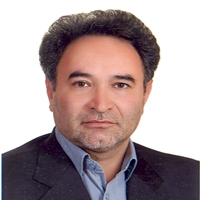Modeling and Predicting the Rate of Scour Depth below Pipelines in Waves Using Gaussian Process Regression (GPR) and Support Vector Machine (SVM) Methods
Pipeline network is one of the major agents of the economic growth and development of a country, which is used to transport fluid fuels, wastewaters, and any other fluids. When these pipelines meet seas and oceans, pipes are laid on the solid bed and it causes changes in the flow pattern around the pipes. In result of these changes, the shear stress of the bed under pipelines and turbulence of current will be increased, and scour will occur under pipelines and the scour hole will form and develop. These holes cause damage and failure to the pipe due to the pipe weight and oscillating loads. Therefore, it is very important to study the scour depth and effective variables to reduce scour and prevent damage. Researchers have conducted experimental and numerical studies on scour phenomenon, considering various types of flows and conditions, and have provided different relations over the years.In this research, the effect of various factors on this phenomenon in waves is investigated using Gaussian process regression (GPR) and support vector machine (SVM). To this end, several laboratory data were used and after defining several non-dimensional parameters the performance of these methods was evaluated. The result of this research demonstrated that these methods are better than experimental relations and have promising outcomes. This study has shown that an SVM model with KC, Re and variables in wave-induced current has the best results. It is worth mentioning that the KC variable has the most significant effect on the scour below pipelines.
-
Evaluation and improvement of the behavior of steel plate shear walls using steel-concrete stiffeners
Hadi Zarrintala, Ahmad Maleki*, Mohamadali Lotfollahi-Yaghin
Quranic Knowledge Research, -
The Effect of Freezing and Thawing Cycles on the Adhesion Between New and Old Concrete with Different Secondary Factors
Meysam Sadighi, Mohammadali Lotfollahi-Yaghin*, Mohammad Naghavi
Quranic Knowledge Research,



